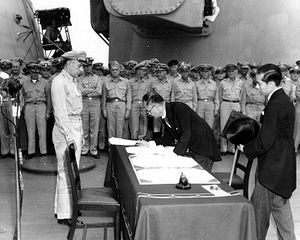The legacy of World War II continues to loom over East Asian politics, as claims and counterclaims about Japanese culpability and punishment dominate the popular conversation between China, Korea, and Japan.
It’s fair to say that the victors of World War II, mindful of the lessons of World War I, had hoped to avoid this outcome. In both Europe and Asia, the Allies established war crimes tribunals intended to properly attribute responsibility to the guilty parties, and to provide a sense of justice for the victims. These tribunals came to Asia some years after its application in Europe. The Nuremberg Tribunals in Germany provided a useful test case for the work of pursuing justice against Japanese officials. Unfortunately, even as the tribunals began, the order established by Allied victory was in full collapse.
A new book by Barak Kushner (reviewed here by Jeanne Guillemin) details some of these issues, taking advantage of newfound access to original records in Chinese and Japanese. Both the victorious Communists and defeated Nationalists had claims against the Japanese, but each also had charges against the other. The United States, which had decided to give its political (if not military) backing to the Nationalist regime, was left in a quandary.
The U.S. desire to reconstruct and rehabilitate Japan exacerbated these difficulties. No one had much of an interest in a remilitarized Japan, but Washington certainly saw Japan as an economic bulwark against Communist expansion in East Asia. Japan could also provide valuable bases to the United States. Consequently, the United States had good reason, despite the attack on Pearl Harbor, to take it easy on the Japanese. As Kushner and Guillemin note, the collapse of the Japanese empire turned out far more messy on the mainland and in Southeast Asia than in Japan itself, which insulated the United States from some of the uglier fallout.
Broadly speaking, both Chinese factions sought to demonstrate their commitment to the new international order by appearing magnanimous towards the defeated Japanese. For their part, the Japanese government voluntarily complied with most of the international demands, but the government never engaged in a thorough effort to explain the proceedings to the Japanese public, with the result that many Japanese never grappled with the reality of the war crimes.
The victory of the Communists in China, and the establishment of revolutionary or anti-colonial regimes in North Vietnam, North Korea, and Indonesia, put the notion of regional reconciliation to bed. Beijing and the rest no longer had much reason to accept Japanese rehabilitation, and Washington suddenly had very good reason to support conservative, establishment forces in Japan. And thus, the legacy of the war endures.

































